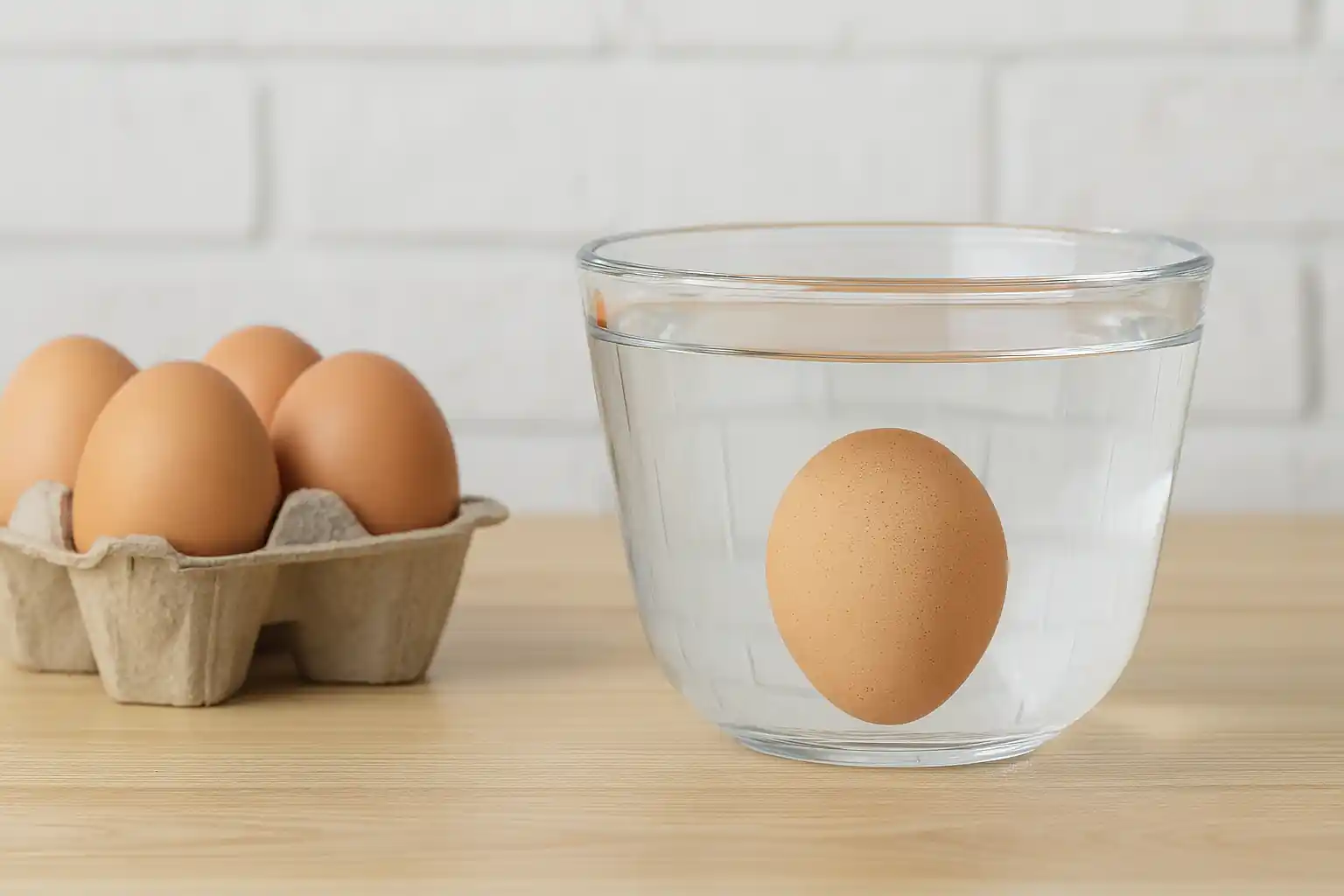How to Tell If Eggs Are Good – A Complete Guide to Egg Freshness
Eggs are one of the most versatile and nutritious foods in the world, but like any perishable item, they eventually go bad. Knowing how to tell if eggs are still good is essential for both food safety and quality in your kitchen. Many people aren’t sure how long eggs last, whether an egg is still safe to eat after the expiration date, or how to test egg freshness without cracking every single one open. In this guide, we will explore every reliable method to check the freshness of an egg, explain what makes eggs go bad, and share expert tips on how to store eggs to make them last longer.
This resource will cover the float test, water test for egg freshness, examining the yolk and egg white, expiration dates on the carton, and even the differences in storage between free-range eggs, organic eggs, and store-bought cartons. By the end, you’ll be able to confidently tell if your eggs are safe to eat and avoid the unpleasant experience of cracking open a rotten egg.
Why Egg Freshness Matters
The freshness of an egg affects not only whether it’s safe to eat but also how it behaves in cooking. Fresher eggs tend to have firmer yolks and thicker egg whites, which are ideal for frying, poaching, or whipping into meringue when making desserts. Older eggs are easier to peel when hard boiled, but past a certain point, they can become unsafe to eat. That’s why learning ways to tell if eggs are still good is essential for every household.
Eggs that are no longer fresh may not immediately make you sick, but once an egg has gone bad, it can contain harmful bacteria such as Salmonella. Eating a bad egg is not only unpleasant but can lead to foodborne illness. That’s why it’s critical to find out how to tell whether an egg is good or bad before using it in your meals.
Freshness and Shelf Life of Eggs
Understanding how long eggs last is the first step in checking egg freshness.
-
Store-bought eggs usually come with a sell-by or expiration date printed on the carton. This date helps you estimate the freshness of an egg but doesn’t always mean the egg is unsafe immediately after the date passes.
-
If stored properly in the fridge, eggs can often last three to five weeks beyond the date printed on the carton.
-
Free-range eggs and organic eggs, if collected fresh and stored in their original egg cartons, may last just as long as regular eggs if refrigerated.
Fresh eggs tend to stay safe to eat longer when you keep them in their original packaging and store eggs in the refrigerator at a consistent cold temperature.
How to Tell If Eggs Are Still Good
There are several reliable methods to tell if eggs are still fresh or if they’ve gone bad. Some involve visual inspection, while others use the famous float test or water test for egg freshness.
The Float Test
The float test is one of the most popular ways to tell if eggs are good. Here’s how to do it:
-
Fill a bowl with cold tap water and place the egg gently into the bowl.
-
Watch how the egg behaves in the water.
-
A fresh egg will sink to the bottom and lay flat on its side.
-
An older egg that is still good will sink but stand upright.
-
A bad egg will float to the surface of the water.
-
Why does this work? As an egg ages, air pockets inside grow larger because the egg actually reduces their oxygen retention over time. A floating egg usually means the egg is no longer fresh and should be discarded.
Cracking the Egg
Another way to find out how to tell if eggs are still good is by cracking them open. Pay attention to:
-
The yolk: In a fresh egg, the yolk is round, firm, and sits high. In an old egg, the yolk may be flat or break easily.
-
The egg white: A fresh egg has thick, cloudy whites. If the egg white is thin and watery, the egg is old but not necessarily bad.
-
Smell: A rotten egg has a very strong sulfur-like smell. If you smell this, the egg is bad and not safe to eat.
The Expiration Date and Carton Labels
Checking the expiration date on the carton is another quick method. While eggs can often outlast their sell-by date if stored properly, expired eggs should always be tested for freshness before use. If the expiration date has passed, perform a float test or crack the egg to check if it’s still fine to eat.
Water Test for Egg Freshness
The water test is often confused with the float test, but they are essentially the same principle. The difference is in how you fill a bowl or glass with water.
-
Fill a bowl or glass with about four inches of cold water.
-
Place the egg in gently.
-
If the egg sinks and lies flat, it’s a fresh egg.
-
If the egg sinks but tilts upward, it’s an older egg but still good to eat.
-
If the egg floats, it’s bad and should not be eaten.
This water test for egg freshness is an easy way to test multiple eggs at once when you have a lot of eggs in a carton.
Signs That an Egg Has Gone Bad
Sometimes eggs don’t pass the float test but still look okay. Knowing other signs of a bad egg helps you avoid eating one that is unsafe.
Visual Clues
-
A discolored yolk or strange-colored egg white is a warning sign.
-
If the shell is slimy, cracked, or has mold, the egg is bad.
-
Egg floating on top of water always means discard it.
Smell Test
If you crack an egg and it smells bad, don’t risk it. A rotten egg has a distinct foul odor that is hard to mistake.
Texture and Consistency
When you break an egg, the egg whites are easier to identify as fresh if they hold together. If they spread out like water, the egg is old. If combined with a bad smell, it’s a clear sign the egg is no longer fresh.
Storing Eggs to Maintain Freshness
Proper storage is key to making eggs last longer and stay safe to eat.
-
Always store eggs in their original carton to protect them from absorbing strong odors in the fridge.
-
Keep eggs in the refrigerator instead of at room temperature, as refrigeration slows bacterial growth.
-
Store eggs in the main body of the fridge, not the door, where the temperature fluctuates more.
-
Free-range eggs and organic eggs should also be refrigerated unless they were never washed, which is sometimes the case in certain countries.
By following these storage tips, you can extend the date if stored properly and ensure your eggs are safe to eat longer.
How Long Do Eggs Last?
Many people wonder exactly how long eggs last before they go bad. The answer depends on how they are stored and whether they are raw eggs, hard boiled, or used in recipes.
-
Raw eggs in the shell: 3–5 weeks in the refrigerator.
-
Hard boiled eggs: About 1 week in the fridge.
-
Raw egg yolks or whites (separated): 2–4 days in a sealed container in the refrigerator.
-
Hard boiled eggs that are peeled: Best eaten within a few days.
Hard boiled eggs spoil faster than raw eggs because boiling removes their protective coating, making them more susceptible to bacteria.
What Happens If You Eat a Bad Egg?
If you accidentally eat a bad egg, you may experience food poisoning symptoms such as nausea, vomiting, diarrhea, and stomach cramps. In severe cases, Salmonella infection can occur. That’s why it’s always best to test egg freshness before using them. Even though eggs past their best date may look okay, eating expired eggs increases the risk of illness.
Practical Kitchen Tips for Using Eggs
Using Older Eggs
Older eggs are not always bad. In fact, older eggs are often easier to peel when making hard boiled eggs. If the egg is still good according to the float test or water test, you can use it for recipes like baking or boiling.
Fresher Eggs for Special Recipes
Fresher eggs tend to whip into meringue better when making desserts. If you need eggs for freshness in delicate recipes like soufflés or poached eggs, choose the freshest ones possible.
Cracking Multiple Eggs
When baking with a lot of eggs, it’s best to crack each egg into a separate bowl first. This way, if one egg has gone bad, you don’t ruin the entire mixture.
Frequently Asked Questions About Egg Freshness
Can Eggs Still Be Good After the Expiration Date?
Yes, eggs can often still be fine to eat past the expiration date if stored properly. Always perform a float test or water test for egg freshness before using expired eggs.
Do Floating Eggs Always Mean They Are Bad?
Yes, egg floating is a clear sign that the egg has gone bad. Even if it looks okay, it’s not safe to eat.
What’s the Best Way to Tell If an Egg Is Good or Bad?
The float test and cracking the egg open are the most reliable ways to tell if an egg is good or bad.
How Do I Store Eggs to Keep Them Fresh Longer?
Store eggs in their original carton in the fridge. Avoid placing them in the door. This helps maintain freshness and ensures the eggs are safe to eat longer.
Looking to achieve perfectly cooked hard-boiled eggs every time? Try the popular Instant Pot 5-5-5 Method—5 minutes of high pressure, 5 minutes of natural release, and 5 minutes in an ice bath for easy peeling and consistent results.
Final Thoughts on Egg Freshness
Knowing how to tell if eggs are still good is a simple but vital skill in the kitchen. From the float test to checking the yolk and egg white, there are many ways to tell if an egg is fresh. Always remember:
-
A fresh egg sinks to the bottom and lays flat.
-
An older egg may stand upright but is usually still okay.
-
A bad egg floats and should be discarded.
By learning these methods and storing eggs properly, you’ll avoid expired eggs, enjoy fresher eggs, and keep your meals safe and delicious.

